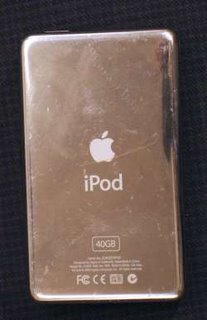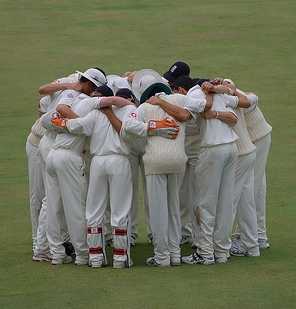Airfix Models applied its last decal on Thursday night after 57 years as the purveyor of modelling kits to generations of children and social inadequates.
Airfix models was born in 1949, into a Britain exhausted by the bitter memories of a long and arduous war, memories which it immediately sought to dispel by encouraging thousands of young Britons to recreate the whole thing in model form. With Airfix Models' popularity soaring, the youth of the post-war United Kingdom soon reached a productivity level usually seen only in replica football kit factories or the cleaning of Victorian chimneys. Boys across the land found themselves building thousands of Spitfires, Lancasters and Messerschmitts, although the production of Fokkers was, sadly, directly responsible for the career of Stan Boardman.
As it moved through its teens and into its twenties, Airfix found itself the subject of several takeover bids, but preferred to remain at home with its parents, content to spend its time shut in its room with sticky fingers, obsessing about warfare - an obsession which was eventually to lead to an unsuccessful attempt by UKTV History to appoint Airfix as the new Head of Programming. Having reached this zenith, however, the only direction left for Airfix to travel was downward. Soon, its morbid fear of social interaction led it to refuse to leave its bedroom altogether. It is understood that its ultimate demise came after it became incapable even of feeding itself, having accidentally glued its tongue to a 1/24th scale replica of the Graf Spee.
During the funeral service, Dave Penbury of the Milset Haven model club (meetings Thursday nights and every 2nd Sunday, St Humbrol's Church Hall) read from St Paul's epistle to the Kit Enthusiasts, at which point several members of the congregation were overcome by emotion, and the rest by the fumes from the adhesive. Airfix was buried in a replica Supermarine Spitfire Mk IXc/XVIe; in accordance with the late model company's Last Will and Testament the port wing machine gun mount had been lost, and one piece was left over.
31 August 2006
| [+/-] |
Airfix Models 1949-2006 |
| [+/-] |
British Summer 2006, 1 June 2006-31 August 2006 |
 British Summer 2006 passed away this week after being soaked to the bone and catching a nasty chill in the torrential downpours that characterise the August Bank Holiday weekend. Despite bed rest, complications set in and “Summer”, as she was known to all and sundry, fell into a deep depression before, tragically, cutting short her own life.
British Summer 2006 passed away this week after being soaked to the bone and catching a nasty chill in the torrential downpours that characterise the August Bank Holiday weekend. Despite bed rest, complications set in and “Summer”, as she was known to all and sundry, fell into a deep depression before, tragically, cutting short her own life.
Summer was born in June - after a difficult, and extraordinarily prolonged, labour, to Winter 05/06 and Spring 2006. She had a difficult upbringing: while her father was a surprisingly warm individual her mother was generally regarded as unusually cold and wet. It was perhaps as a result of this that Summer decided to throw off the traces with such abandon on leaving home - breaking temperature and sunshine records throughout June and July. But consulting meteorologists at the Red Sky Night Hospital believe this two months of “partying hard” – when she should have been raining on beach holidays in Llandudno and giving under-dressed fell-walkers in the Peak District hypothermia – may have led to her untimely demise.
She was laid to rest this week at St Ulrika's Seaweed Church of Meteorologists. In attendance at the funeral were many distraught friends and family including Wimbledon fortnight, members of the UK Holiday Industry and representatives of all the UK water companies. Global Warming was conspicuous by its absence, claiming to be too busy melting the polar icecaps.
Sadly, Autumn created a scene during the service – complaining that half her work had already been done by Summer 2006. Her brief, but intense, heat had already caused most flowers and plants to wither and die and made many trees across the country shed their browned leaves, while Summer's rains had prematurely ushered in the season of mists and miserable listlessness.
As British Summer 2006 was lowered into the ground, the Rev Michael Fish licked his finger, held it up to the heavens, said a short prayer for clement weather and was immediately blown away by an unexpected Force 12 gale.
British Summer 2006 was descended from a long line of appalling British Summers and is survived by Autumn 2006 and her ungrateful child, Winter 2006/07.
29 August 2006
| [+/-] |
iTunes 2001-2006 |
 It is with great sadness that As A Dodo must report the passing away of Apple Computer's iTunes software, following a sudden and wholly unexpected assault by a gang of vested interests led by a rival digital media player application known as Spiralfrog.
It is with great sadness that As A Dodo must report the passing away of Apple Computer's iTunes software, following a sudden and wholly unexpected assault by a gang of vested interests led by a rival digital media player application known as Spiralfrog.
iTunes was born on January 9, 2001 at MacWorld Expo San Francisco 2001, in a time when organising a record collection meant not filing your Lauryn Hill next to N'Sync and the best way to store tracks on a computer was to use its top as a CD rack. Starting off as a humble program, slaving away for hour after hour in the blinding glare of countless iMacs, iTunes was quick to see a means to escape. Soon, it found its way out onto the streets at the head of a pitiless gang of iPods, intent on making money by selling highly addictive "music" to young and old alike, meanwhile viciously wiping out any rival media players that dared to enter its 'Hood. Before long, children as young as five or six were finding themselves signing on as confirmed iTuners and spending hours on end "plugged in", their minds wasted by a diet of easily selectable tunes organised exactly as they wanted.
With iTunes' influence spreading wider and wider, it was perhaps inevitable that it would come under attack from rivals. Soon it was facing attacks from old-established gangs like the Walkmen and the Creatives, along with would-be "gangstas" like the Microsoft Zunes. Refusing to take to hiding, iTunes continued to be seen on the streets every day, right up to its final attack by the upstart Spiralfrog, apparently high on advertising revenue.
iTunes was buried in a simple white coffin, which will need to be replaced on a bi-yearly basis in order to remain compatible, or sooner if the fascia cracks.
| [+/-] |
The Liberal Democrats' Drink Problem 1999-2006 |
The Liberal Democrats, along with many members of the British press, have today been remembering the party's Drink Problem after news of the LibDem's attempts to bury it in secret were leaked to journalists at The Times. The Liberal Democrats Drink Problem was born in 1999, when TV chatshow guest, bon viveur and occasional MP Charles Kennedy announced his intention to stand for the party leadership, something he achieved with the aid of a skilled campaign team, a set of exciting policies and a handy wall to prop himself up against. While at first it confined itself to private appearances and occasional performances for friends in the bars of the House of Commons, by late 2002 the Drink Problem decided it was time to bring itself to the public's attention, starring in a performance of "Whisky Galore", with Jeremy Paxman playing the stuffy and overbearing head of the local militia. Its appetite for the public stage whetted, the Drink Problem was soon a regular on the political circuit. In early 2003 it brought the house down with several performances of "The Man Who Wasn't There" during Prime Minister's Questions. By the run up to the General Election the Drink Problem was successfully reprising Bob Hope's role as an inept man completely out of his depth, playing the eponymous hero of "The Pale-Face". By late 2005, however, the Drink Problem was losing its popularity with party and public. Soon it was appearing to small crowds of the elderly and infirm at assorted seaside venues and any other places where Liberal Democrat conferences were being held.
The Liberal Democrats Drink Problem was born in 1999, when TV chatshow guest, bon viveur and occasional MP Charles Kennedy announced his intention to stand for the party leadership, something he achieved with the aid of a skilled campaign team, a set of exciting policies and a handy wall to prop himself up against. While at first it confined itself to private appearances and occasional performances for friends in the bars of the House of Commons, by late 2002 the Drink Problem decided it was time to bring itself to the public's attention, starring in a performance of "Whisky Galore", with Jeremy Paxman playing the stuffy and overbearing head of the local militia. Its appetite for the public stage whetted, the Drink Problem was soon a regular on the political circuit. In early 2003 it brought the house down with several performances of "The Man Who Wasn't There" during Prime Minister's Questions. By the run up to the General Election the Drink Problem was successfully reprising Bob Hope's role as an inept man completely out of his depth, playing the eponymous hero of "The Pale-Face". By late 2005, however, the Drink Problem was losing its popularity with party and public. Soon it was appearing to small crowds of the elderly and infirm at assorted seaside venues and any other places where Liberal Democrat conferences were being held.
The Liberal Democrats eventually buried their Drink Problem in an extremely private ceremony held on a patch of waste ground in the early hours of the morning. At the head of the mourners was party leader Sir Menzies Campbell, who performed his task of keeping an eye out for any possible witnesses with his customary dignity and aplomb. The burial, illuminated by moonlight and Simon Hughes's battery-operated torch, was marred only by the need to keep absolutely quiet to avoid attracting anyone's attention and by Charles Kennedy making several attempts to climb out of the coffin and get to the bar before last orders.
The Liberal Democrats Drink Problem is survived by countless empty whisky bottles and several distraught distilleries.
26 August 2006
| [+/-] |
Tom Cruise's Major Studio Deal 1992-2006 |
Tom Cruise’s Major Studio Deal died suddenly this week after a long battle with declining box office returns. Despite the Deal's long illness, Mr Cruise forthrightly rejected all medical assistance for it, citing his deeply held religious beliefs and the difficulty of giving it an injection whilst he was bouncing up and down on its hospital bed.
Tom Cruise's Major Studio Deal came to prominence in 1992 when, desperate to shake off its image as the career of a diminutive, wooden-faced, pretty boy who expressed emotion and character chiefly by alternating between staring silently and shouting maniacally at his co-stars, it persuaded Tom Cruise to sign up with Paramount Studios in a contract that would guarantee him new and varied roles, and vast sums of money. In the ensuing years these varied roles were to come thick and fast. Who can forget A Few Good Paychecks, in which Tom played a diminutive, wooden-faced military lawyer – expressing emotion and character chiefly by alternating between staring silently and shouting maniacally at his co-stars: “You want the money?! You can’t handle the money! Show me the money!”? Next came Jerry Morewages, with Cruise wittily playing a diminutive, wooden-faced sports agent – expressing emotion and character chiefly by alternating between staring silently and shouting maniacally at his co-stars: “Show me lots of money! So I can give it to the Scientologists! Did I mention I'm Operating Thetan Seven!?” Before long came the lead in top box office blockbuster Mission: Unpayable, with Cruise playing against type as a diminutive wooden-faced spy – expressing emotion and character chiefly by alternating between staring silently and shouting maniacally at his co-stars: “I love her! This sofa will self-destruct in five seconds! Give me more money”.
In the ensuing years these varied roles were to come thick and fast. Who can forget A Few Good Paychecks, in which Tom played a diminutive, wooden-faced military lawyer – expressing emotion and character chiefly by alternating between staring silently and shouting maniacally at his co-stars: “You want the money?! You can’t handle the money! Show me the money!”? Next came Jerry Morewages, with Cruise wittily playing a diminutive, wooden-faced sports agent – expressing emotion and character chiefly by alternating between staring silently and shouting maniacally at his co-stars: “Show me lots of money! So I can give it to the Scientologists! Did I mention I'm Operating Thetan Seven!?” Before long came the lead in top box office blockbuster Mission: Unpayable, with Cruise playing against type as a diminutive wooden-faced spy – expressing emotion and character chiefly by alternating between staring silently and shouting maniacally at his co-stars: “I love her! This sofa will self-destruct in five seconds! Give me more money”.
In recent years, however, it became clear that the health of the Major Studio Deal was unwell. While Tom himself stuck to the task of promoting scientology and acting weirdly on major chatshows, the Deal was often to be found desperately chasing after directors all over Hollywood in search of one more hit. Many saw its eventual decline as inevitable, especially those who sat through War of the Worlds.
Tom Cruise’s Major Studio Deal passed away on Wednesday, leaving all its multi-million dollar fortune to a diminutive, wooden-faced actor, who expressed his deep emotion at the loss chiefly by alternating between staring silently and shouting maniacally at his fellow mourners. Friends of Mr Cruise say he will honour the memory of his deal by continuing to surprise and delight audiences around the world with his ability to stretch himself. His next project is rumoured to be a biopic of Tom Thumb.
25 August 2006
| [+/-] |
Cricket Umpiring: A Correction |
Relatives of the recently deceased Cricket Umpiring have asked the staff at As A Dodo to inform all those wishing to commemorate Umpiring's sad passing that the deceased asked that no flowers be sent. Those wanting to see cricket umpiring quietly buried are instead requested to send $500,000 in unmarked bills.
| [+/-] |
The Planet Pluto 1930-2006 |
The Planet Pluto sadly passed away this week, aged 76. Pluto, long believed to be the ninth planet of the Solar System, was discovered in 1930 at the Lowell observatory in Flagstaff, Arizona by one Walt Disney, who caused consternation among the whole astronomical community when he claimed the planet was actually a small, brown dog that orbited Mickey Mouse. Following Mr Disney's removal to a well-known rest home for the insane ("Hollywood"), Pluto was finally identified as a small planet circling the sun at the very edge of the solar system. Observations over the next 70 years revealed it to be a small and desolate location almost wholly lacking in atmosphere, leading many to confuse it with Leicester.
Pluto, long believed to be the ninth planet of the Solar System, was discovered in 1930 at the Lowell observatory in Flagstaff, Arizona by one Walt Disney, who caused consternation among the whole astronomical community when he claimed the planet was actually a small, brown dog that orbited Mickey Mouse. Following Mr Disney's removal to a well-known rest home for the insane ("Hollywood"), Pluto was finally identified as a small planet circling the sun at the very edge of the solar system. Observations over the next 70 years revealed it to be a small and desolate location almost wholly lacking in atmosphere, leading many to confuse it with Leicester.
During it's 76 years in the solar system, Pluto was an enthusiastic - some might say over-enthusiastic - planet, trying to draw attention to itself with its jauntily slanted orbit, attempts to sneak up on the sun while Neptune's back was turned and its party trick of turning its somewhat sparse atmosphere into ice every time it approached the solar system's fringes. As the years went by, Pluto also began to hang out with other, less reputable astronomical bodies including Ceres and the leather-bookmark-skirted Xena. Eventually the other planets decided they had no alternative but to pull the plug on their brash companion, particularly after its failure to make it either as a caramel-and-nougat-based chocolate bar or gain an entry into Gustav Holst's Planets Suite.
The Planet Pluto was quietly buried on Thursday along with its moons Charon, Nix and Hydra, in a moving ceremony attended by the remaining members of the solar system, marred only when Neptune and Mercury kept calling Uranus's name out and giggling.
21 August 2006
| [+/-] |
Cricket Umpiring 1646-2006 |
 The cricket world was today mourning the sad demise of umpiring following the self- immolation of Australian umpire Darrell Hair during the fourth test match between England and Pakistan at the Oval. In the early hours of the evening, Mr Hair decided to pour petrol over himself and international cricketing relations before setting light to it in protest over an alleged ball-tampering incident. Whose balls were allegedly tampered with, or why, we shall now never know, though friends of cricket umpiring have suggested that someone had attempted to "grab Pakistan by the googlies". Already the incident is being compared to the notorious "Bodyform" Ashes series, in which England decided to target the brilliant Australian batsman Donald Bradman by bowling sanitary towels at him.
The cricket world was today mourning the sad demise of umpiring following the self- immolation of Australian umpire Darrell Hair during the fourth test match between England and Pakistan at the Oval. In the early hours of the evening, Mr Hair decided to pour petrol over himself and international cricketing relations before setting light to it in protest over an alleged ball-tampering incident. Whose balls were allegedly tampered with, or why, we shall now never know, though friends of cricket umpiring have suggested that someone had attempted to "grab Pakistan by the googlies". Already the incident is being compared to the notorious "Bodyform" Ashes series, in which England decided to target the brilliant Australian batsman Donald Bradman by bowling sanitary towels at him.
It was in 1646 that the cricket umpire first made his tentative appearance in the world, calling "play" on a limited-overs match between two Kentish sides which sadly had to be abandoned almost immediately when bad light and the English Civil War stopped play. This was just the beginning of a troubled childhood: only two years later the whole game of cricket was banned by the new Puritan parliament, who regarded it as liable to induce ungodly merriment and impious consumption of cucumber sandwiches. Happily the game, and umpiring along with it, returned to favour following the Restoration, when the newly-crowned King Charles II was informed that bowling a maiden over was a highly-prized feat in any cricket match. After this difficult youth, cricket and umpiring soon grew to prominence on the world stage, bringing to the remotest parts of the Empire the deeply-held British values of decency, fair play and utter self-delusion, not to mention official incompetence.
Following its cremation on Sunday, the last remains of cricket umpiring have been laid to rest in a small urn, whose ownership will be contested in a bi-annual contest between England and Pakistan, represented by ex-England captain Mike Gatting and the late Pakistani former umpire Shakoor Rana.
18 August 2006
| [+/-] |
Albert Camus's "The Outsider" 1942-2006 |
Albert Camus's novel The Outsider ("L'Etranger") died today. Or maybe yesterday. The world-famous absurdist novel, about a man who shoots an Arab for no reason and then refuses to feel guilty for what he has done, was wounded in a fatal explosion of irony at the weekend when it was revealed that the book was at the heart of President George Bush's summer reading. The Outsider was born in 1942 to a union of absurdist philosophy and the retired goalkeeper of the University of Algiers second XI. A precocious child, by the late 1940's it was already to be seen hanging around with the likes of Jack Kerouac, its habit of wearing black polo-neck sweaters and chain-smoking Gauloises cigarettes, along with its habitual cry of "Je suis l'étranger, daddio" making it easy to spot on its trips outside the smoke-filled interiors of bebop jazz clubs.
The Outsider was born in 1942 to a union of absurdist philosophy and the retired goalkeeper of the University of Algiers second XI. A precocious child, by the late 1940's it was already to be seen hanging around with the likes of Jack Kerouac, its habit of wearing black polo-neck sweaters and chain-smoking Gauloises cigarettes, along with its habitual cry of "Je suis l'étranger, daddio" making it easy to spot on its trips outside the smoke-filled interiors of bebop jazz clubs.
Tiring of its dim surroundings, The Outsider soon found itself migrating to university campuses across the globe. It came to Britain in the 1950's where it soon became famed among duffel-coated male students as the key to French philosophy, to the coolness of alienation and to copping off with female students. With its influence ever-increasing, by the late 1960's The Outsider was to be found at the head of protests and sit-ins across the globe, from the riot-torn streets of Paris to the slightly disordered desks of the Pinner College Upper VIth Form Geography Class.
As both it and its friends drifted into middle age, The Outsider began to abandon its radical past, eventually being persuaded to appear on A-level syllabuses, where it was to confuse generations of teenagers. Despite this it was occasionally to be found, looking a little tattered, hanging around in coffee bars with would-be intellectuals, a cigarette dangling from its lips, still trying to impress young women.
Albert Camus's The Outsider will be buried in a student flat, beneath several posters of Che Guevara, some Leonard Cohen CD's and a rucksack full of dirty washing due to be taken back to mum next weekend. Anyone who does not cry will be hanged.
16 August 2006
| [+/-] |
David Beckham's England Career 1996-2006 |
The sad demise of David Beckham’s England Career, which passed away this week at the tender age of ten, while not unexpected has left a gaping void in the England midfield, the pages of the tabloids and several multi-million pound sponsorship deals.
Friends of David Beckham’s England career say the end came quickly, following the announcement by new England manager, Steve McClaren, that he hoped to take the national football team “in a different direction”– namely forward, towards the opposition’s goal.
David Beckham’s England career began in 1996, when the young David Beckham faced an agonising choice – to give up his lucrative career as a Joe Pasquale sound-alike and part-time model for a Leytonstone tattoo parlour or to play his first match for England against Moldova.
Having taken the plunge into international underachievement, David Beckham went on to win 96 caps for his country – while designing 3,174 under his own label, mostly for sale in the expanding Far East market where, ironically, many of the caps were made.
The England career went on to even greater heights, with Beckham wearing the Captain’s armband 56 times – sometimes on his arm, sometimes as a fetching thong and throughout most of the 2006 World Cup in Germany, as a blindfold.
Famed for his tattoos, wearing sarongs in public and having haircuts, Beckham initially managed to find time for other pastimes, including football. Sadly, this sideline quickly foundered due to his difficulty in deciding whether to play on the left or right wing or whether to play home or away.
The highlight of David Beckham’s England career arrived in 2004 with the signing of a £40 million sponsorship deal with Gillette which finally banished bitter memories of his petulant quarter-final outburst against Argentina which shattered England’s 1998 World Cup dream for most England fans.
David Beckham’s England career was laid to rest in a moving ceremony attended by the leading lights of England International Football along with Frank Lampard, Michael Owen, Jamie Carragher, Joe Cole, Gary Neville, John Terry, Rio Ferdinand, Ashley Cole and Wayne Rooney, Steve McClaren and Sven-Goran Eriksson, while Theo Walcott was left to mind the umbrellas. Also in attendance were the brightest stars in the celebrity firmament along with Beckham’s wife Victoria, Elton John, Max Clifford and the footballer’s voice-coach for many years, Sweep.
The ceremony was briefly marred when undertakers struggled to lower Beckham’s career into the grave. But in the dying minutes of the service substitute pall-bearer Aaron Lennon made a dazzling dash down the right-wing of the cemetery, beating three mourners and the paparazzi defence, before slotting David’s career square across the box. Frank Lampard was on hand to receive but blazed it clean over the open grave.
Beckham’s England Career is survived by his sponsorship and merchandising career at Real Madrid, where his solid work and hard graft has boosted sales of team shirts by over 27%.
David Beckham's England career was pre-deceased by Victoria Beckham's career which passed away in November 2000.




